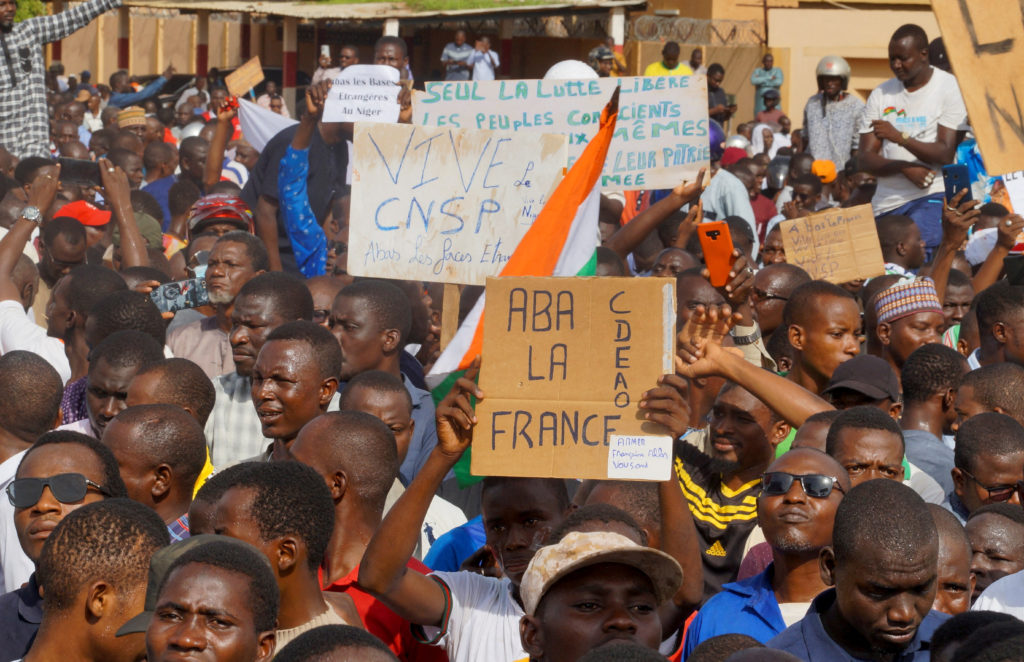In the heart of West Africa, a political storm is brewing. Niger, a landlocked nation in the Sahel region, is in the throes of a military coup. Soldiers from the country's elite presidential guard have detained President Mohamed Bazoum, suspended the constitution, and declared themselves the new leaders. This sudden power shift has plunged the nation into a state of uncertainty and sparked international concern.
The coup leaders, led by General Abdourahmane Tchiani, justified their actions by citing the government's inability to protect the nation from escalating jihadist violence. However, the international community, including the West African regional group ECOWAS, the UN Security Council, and various countries such as the US and France, have condemned the coup, calling for the immediate and unconditional release of Bazoum.
The implications of this coup extend far beyond Niger's borders. For the United States, Niger has been a crucial ally in the fight against Islamist insurgents in the Sahel region. The country hosts around 1,100 US troops and has received significant assistance from Washington. However, the coup threatens this relationship, as US law requires the country to cut foreign and military assistance to any country where the elected head of government has been deposed in a coup. This could potentially weaken the fight against terrorism in the region and destabilize an already fragile security situation.
France, too, has a vested interest in Niger. With 1,500 soldiers conducting joint operations with the Nigeriens, France has been heavily involved in the country. The coup leaders' accusations of France plotting a military intervention have further strained relations, leading to the evacuation of French citizens from Niger. This crisis could potentially disrupt France's counter-terrorism operations in the Sahel, a region already grappling with jihadist violence.
For West African countries, the coup in Niger marks the fall of one of the last democratically elected governments in the Sahel. This could potentially embolden military factions in other countries and destabilize the region further. The Economic Community of West African States (ECOWAS) has suspended Niger, threatening to cut off all commercial and financial transactions, which could have severe economic implications for the country.
The crisis in Niger could also impact the planned withdrawal of United Nations peacekeepers from neighboring Mali. The political instability in Niger adds another layer of complexity to the region's security efforts, potentially affecting the mission's planned withdrawal by the end of the year.
In conclusion, the coup in Niger is not just a national crisis but a regional concern with global implications. The political instability threatens to disrupt international counter-terrorism efforts, strain relations with key allies, and destabilize an already volatile region. As the world watches, the unfolding situation in Niger serves as a stark reminder of the fragile balance of power in Africa and especially in the Sahel region, with potential repercussions of political instability in this strategically important region. The international community must act swiftly and decisively to restore democratic rule and prevent further escalation of violence, for the sake of Niger and the broader Sahel region.










Trackbacks and Pingbacks